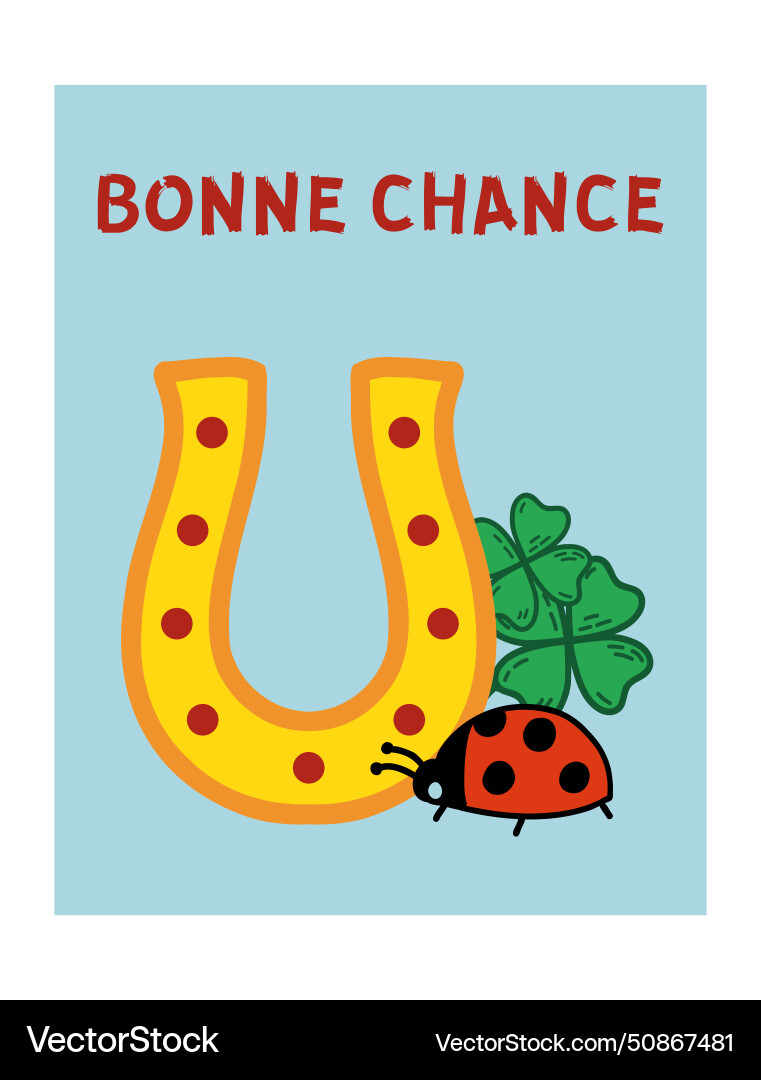How Do You Say Good Luck In French

So, you're about to dive into the wonderful world of French! Maybe you're ordering a croissant, charming a Parisian, or just trying to impress your friends. Well, hold on to your berets, because we're about to tackle something super important: how to say "good luck" in French!
Forget those complicated grammar books for a second. We're going to get down to the nitty-gritty, fun-and-easy way to wish someone the best. Get ready to sound like a true Francophile, even if you can't tell a baguette from a brioche (yet!).
The Classic: Bonne Chance!
This is your bread and butter, your go-to, your "when in doubt, shout it out" option. Bonne chance! literally translates to "good luck." It's simple, elegant, and works in almost any situation.
Imagine your friend is about to audition for the starring role in the school play. Leaning in with dramatic flair, you declare, "Bonne chance!" They'll feel like they're about to conquer the Comédie-Française, guaranteed!
Someone's taking a driving test? Bonne chance! Trying to parallel park in Paris? They'll need all the bonne chance they can get! You can even use it if someone's trying to assemble IKEA furniture – trust me, they'll appreciate it.
Spice It Up: Variations and Alternatives
Okay, bonne chance is great, but what if you want to add a little *je ne sais quoi* to your well-wishing? Let's explore some variations to impress even the snootiest French poodle.
For Exams and Tests: Merde!
Yes, you read that right. Merde! (literally "shit!") is a traditional way to say good luck before a performance or exam. I know, it sounds crazy, but hear me out.
The idea is that you're wishing the person so much bad luck that the opposite will happen. Think of it like reverse psychology, but in French. You can say "Merde!" to your friend before their big presentation. But be sure to follow it with an explanation so they don't think you're just being rude!
You might get a strange look if you yell merde! at your grandma before her bingo night. Just stick to bonne chance for that one.
Expressing Hope: Je te souhaite bonne chance
Want to be a little more formal and express your personal hope for their success? Try Je te souhaite bonne chance. This translates to "I wish you good luck."
It's a touch more heartfelt than just a plain bonne chance. If your colleague is interviewing for their dream job, this is a lovely and sincere way to wish them well.
Picture this: you're sipping espresso, watching the Eiffel Tower sparkle, and whispering "Je te souhaite bonne chance" to your loved one as they embark on a new adventure. So romantic!
Encouragement: Bon courage!
This one is a bit different. Bon courage! translates to "good courage" or "have courage." It's used to wish someone strength and perseverance when they're facing a difficult task.
If your friend is moving apartments, studying for a really tough exam, or trying to navigate the Parisian metro during rush hour, bon courage! is the perfect expression.
It's like saying "hang in there!" or "you got this!" It's all about offering encouragement and support, even when things get tough. It shows you recognize their challenge and believe they can overcome it.
Putting It All Together
So, there you have it! A whirlwind tour of saying "good luck" in French. From the classic bonne chance! to the slightly bizarre merde!, you're now armed with the knowledge to wish anyone the best, French-style.
Go forth, sprinkle some French luck around, and remember to have fun with it! After all, learning a language should be an adventure, not a chore. And who knows, maybe your newfound linguistic skills will bring you some *bonne chance* too!
Remember: practice makes perfect (or at least, makes you sound less like a confused tourist). So, go out there and spread the French good vibes! Bonne chance!






![How Do You Say Good Luck In French 93How To Say Good Luck In French [75+ Charming Phrases] - GetFrenchClasses](https://www.datocms-assets.com/110759/1730535070-how-to-say-good-luck-in-french-awesome-and-useful-phrases.png?h=1404&w=2496&fit=min&auto=format)











